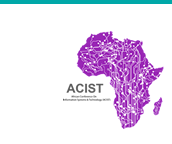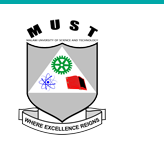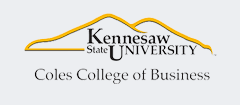Location
Harare, Zimbabwe and Virtual
Start Date
12-9-2024 3:00 PM
End Date
12-9-2024 3:25 PM
Description
The integration of computational creativity and AI-augmented design thinking into Information and Communication Technology (ICT) education represents a significant opportunity to prepare students for the evolving demands of the technology sector. This study employs a mixed-methods approach to investigate the potential for such integration, addressing the gap between current ICT education and the growing need for professionals skilled in both technical and creative domains. Through a systematic literature review, case studies of existing programs, expert interviews, and a large-scale survey of educators and students, we explore the challenges and opportunities in redesigning ICT education. Our research reveals significant disparities between industry needs and current educational outcomes, identifies key competencies for AI-augmented creativity, and uncovers successful models of creative-technical integration in ICT education. We propose the CREATIVE-ICT framework, a comprehensive approach for curriculum redesign that emphasizes core AI concepts, reflective practice, experiential learning, artistic integration, technical proficiency, interdisciplinary synthesis, visualization skills, and ethical considerations. The study also addresses assessment challenges and ethical implications of AI in creative education. Our findings contribute to the ongoing dialogue on responsible AI education and provide actionable recommendations for educators and policymakers to foster innovation at the intersection of creativity and technical expertise in ICT education.
Included in
Explainable Creative AI in ICT Education: Merging Art and Technology
Harare, Zimbabwe and Virtual
The integration of computational creativity and AI-augmented design thinking into Information and Communication Technology (ICT) education represents a significant opportunity to prepare students for the evolving demands of the technology sector. This study employs a mixed-methods approach to investigate the potential for such integration, addressing the gap between current ICT education and the growing need for professionals skilled in both technical and creative domains. Through a systematic literature review, case studies of existing programs, expert interviews, and a large-scale survey of educators and students, we explore the challenges and opportunities in redesigning ICT education. Our research reveals significant disparities between industry needs and current educational outcomes, identifies key competencies for AI-augmented creativity, and uncovers successful models of creative-technical integration in ICT education. We propose the CREATIVE-ICT framework, a comprehensive approach for curriculum redesign that emphasizes core AI concepts, reflective practice, experiential learning, artistic integration, technical proficiency, interdisciplinary synthesis, visualization skills, and ethical considerations. The study also addresses assessment challenges and ethical implications of AI in creative education. Our findings contribute to the ongoing dialogue on responsible AI education and provide actionable recommendations for educators and policymakers to foster innovation at the intersection of creativity and technical expertise in ICT education.



